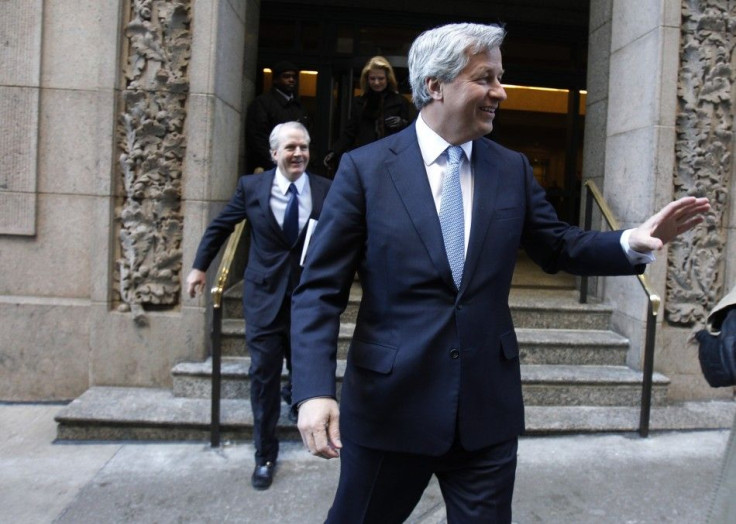Romney Campaign Defends JP Morgan, Contradicting Obama

JPMorgan's massive $2 billion trading loss has spilled over into presidential politics, with presumptive Republican nominee Mitt Romney's campaign calling the disastrous trade an example of the inherent risks of the free market.
The leadership of that company will be held accountable for this trading loss, but we don't want to punish companies, top Romney adviser Erich Fehrnstrom told NBC's Today program. There was no taxpayer money at risk. All of the losses went to investors, which is how it works in a public market.
That is a stark contrast from the reaction of President Barack Obama, who has used the debacle to reiterate the need for financial reform. The Dodd-Frank financial reform bill has divided Republicans and Democrats, with Romney echoing his party's view that the bill inhibits the flow of capital and saddles the financial sector with needless rules.
Mitt Romney is not advocating that there be no regulation, Fehrnstrom said. But our regulation should be effective, it should be streamlined. It should not be cumbersome, and it should not act as a wet blanket or a damper on the economy.
New York City Mayor Michael Bloomberg also gave his public backing to JPMorgan, heralding the firm's stellar reputation and the intelligence of CEO Jamie Dimon.
There's no lending without risk. There's no economy without lending. If we're going to have a no-risk banking system, we are not going to have an economy, Bloomberg said a press event, adding that we want JPMorgan to be profitable because if they're profitable then they'll have the capital to lend. If they're not profitable, they can't create jobs.
In an appearance on the ABC program The View, Obama singled out the JPMorgan debacle as the reason we passed Wall Street reform, noting that it failed in part due to risky trades in the derivatives market similar to those that helped precipitate the housing market's collapse.
Since these banks are insured, backed up by taxpayers, Obama said, we don't want you taking risks where eventually we might end up having to bail you out again, because we've done that, been there, didn't like it.
While Congress passed the Dodd-Frank bill in 2010, some of its provisions -- including the so-called Volcker Rule, which would restrict banks from types of speculative investments -- have yet to be implemented. Obama said that his and Romney's differing views on the needs for such regulation would be a defining difference of the 2012 presidential race.
Additional reporting from New York by Sara Dover.
© Copyright IBTimes 2025. All rights reserved.





















